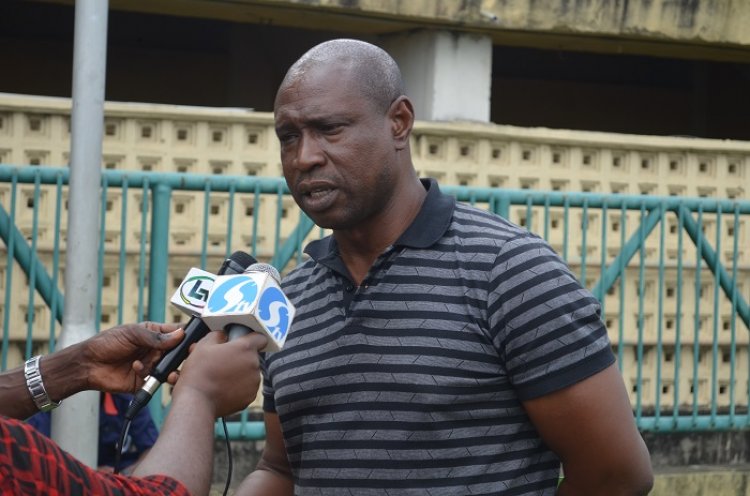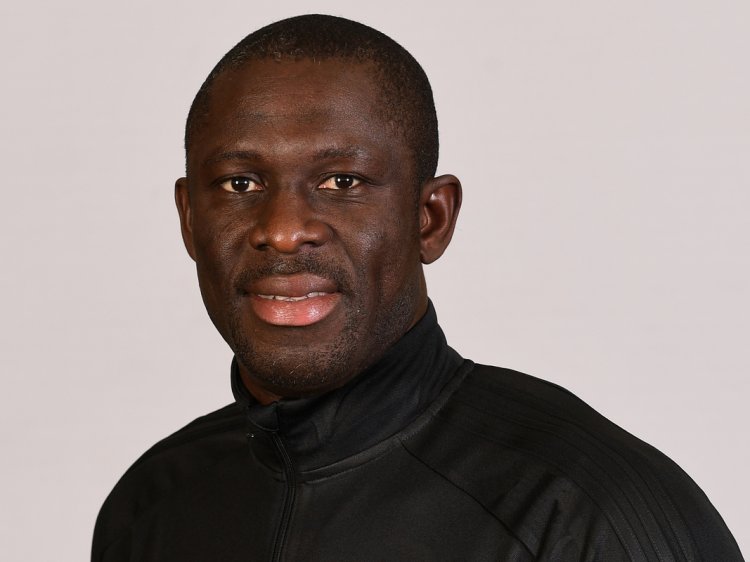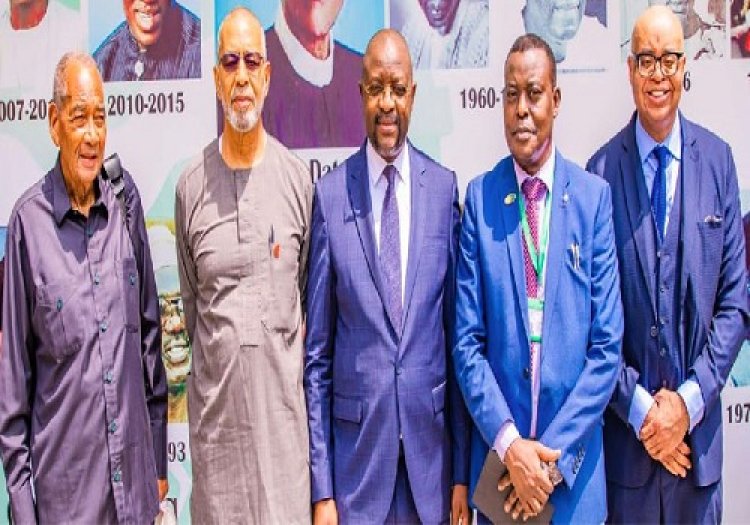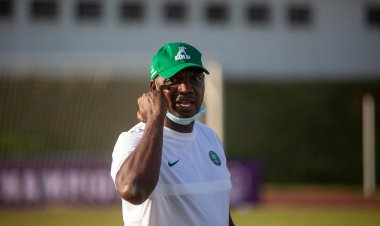We need to learn what the Americans are doing with Sports and Education-Osaghae
The NIIA DG speaks on what Nigeria can learn from the smooth marriage between sports and education in America

In the concluding part of our interview with the Director-General of the Nigerian Institute of International Affairs (NIIA) Eghosa Osaghae, a Professor of Political Science, he talked about what we can learn from the smooth marriage between sports and education in America and the state of sports in Nigeria today. DAVID MESHIOYE reports
Nigeria sports legend Yussuf Alli, now Executive Chairman of Edo State Sports Commission (ESSC) can talk about the banes of sports in Nigeria all day, all night.
A product of School Sports who made the Nigeria team to the Moscow 1980 Olympic Games as a student of St. Gregory College, Obalende, Lagos.
Alli later got a scholarship to a school in America where he did a Bachelor’s and Masters’ degrees.
For Alli, sports stop for the average Nigerian youth after Secondary School, “Our tertiary institutions see sports as a distraction, in the United States where I schooled sports is part and parcel of our education and daily life. Unless we return sports to schools, our dream of becoming a global leader in sports will never be realized”.

Alli’s postulation is backed by fact. America is the global leader in sports today because of the working marriage between sports and education. So fruitful is the marriage that students from four universities in the state of California, one of the 50 states in America, have won more medals in the Olympic Games than the whole of Africa.
The University of Southern California has won 326 Olympic medals, Stanford University 302 medals, the University of California Los Angles 270 medals, University of California Berkeley 223 medals.
A former Vice-Chancellor and lecturer, Osaghae agrees with Alli that have a lot to learn from the Americans.
“That is the whole purpose of NUGA NIPOGA, and other tertiary institutions games and championships were intended for. Years ago, many of our top athletes came from universities. Emmanuel Ifeajuna, the first Black African to win a gold medal at an international sports event when he won who won a gold medal in the High Jump at the 1954 British Empire and Commonwealth Games, now called Commonwealth Games was a student at the University of Ibadan.
“Segun Odegbami and Felix Owolabi all came from the ranks. We need to learn from what the Americans are doing. Sportspeople in these universities are given all the preferences in every circumstance; free food, accommodation, and even some of them are paid to encourage them.
“Back then at the University of Ibadan, our athletes get beverages, glucose, and all those incentives. They appeared like they were not so serious but those were the incentives.
“I know part of what destroyed the whole of that culture was when we took rivalry and competitions so far as to encourage Universities and other higher learning to bring in mercenaries to represent them.
“When if you supposedly have University people there is always a question mark around them. That is not to be taken in isolation, it's just a reflection of the rot that the country started to experience in every sector.
“I think if we allow our Universities to enjoy a piece of autonomy, I'm sure universities can have policies that are individuals, we don't have to do the same thing.

“Idahosa University was doing well in private University Games by giving out scholarships to students who engage in sports. Seyi Olofinjana seems to be the last person from the institution of higher learning that featured in our national team.
“The challenge now that sports have become such a big industry, we need to take sports to the Universities, Polytechnics and Colleges Education not just to prepare students for major competitions but how much can you do when the school is more closed than open?
“There are many things that we need to get right; administration is one, the management of our talents is another and also the institutional foundation we have about these things must be returned.”

Looking at sports globally and Nigeria, we can say the country has the talent and passion to become a great nation. But if you look critically at sports locally, it is not just there, so how do you intend to use sports to sell Nigeria to the world when the sport is not in existence?
“Sports have always been there. I’ll give you an example. When I was in Grammar School we had Inter-House Sports annually and as students, we went into the forest to cut palm trees and fronts to build those tools for what is like the stadium of today. “That is the tradition, many of the guys who are world beaters have that foundation. But recently I told some school principals that we are losing it but they said they don't have funding.
“I found that ridiculous because when we had those inter-house sports at that time, we were not looking for sponsors, we didn't have sponsors like Globacom and MTN, it was all about self-improvement.
READ ALSO: The universality of sports makes it a veritable tool for diplomacy- Osaghae
“We also encourage school band and that was how musical groups developed, it was an integrated thing and students look forward to that but today we don't have them for the reasons these principals are telling you; no funding, no sponsors.
“The point you are making is that sports have become a huge global project, it's a major embodiment and a carrier of globalisation. And when you think of globalisation in those outlandish and polished package ways, they expose our inadequacies because now suddenly there is demand for a good playing field in areas of football.
“Suddenly we are told that our turfs don't measure well. These are not things we would have thought of some years ago but the whole world is changing. As this thing goes around we must respond to the demand for improvement in all that most especially now that we have world-beaters.
“We now see sports as a business and we are only hoping that it will not remain at the level of globalised things but they will let it get down because we need to lay the foundation that we've always had.” Said Osaghae.




















